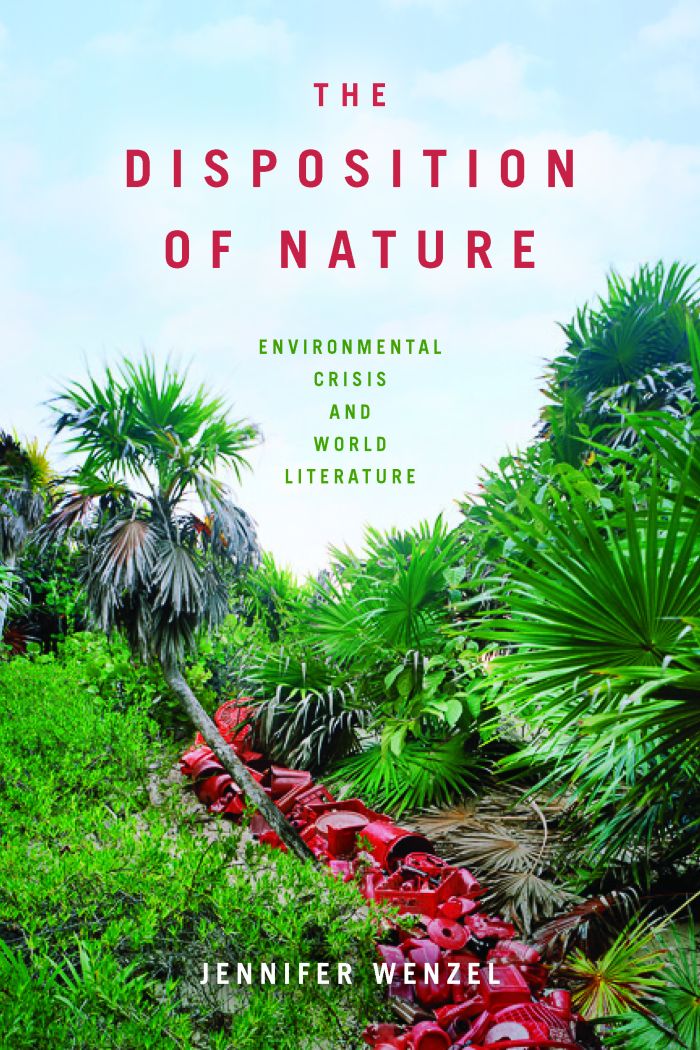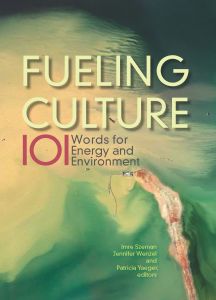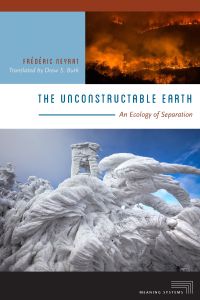The Disposition of Nature
Environmental Crisis and World Literature

This book can be opened with

Finalist, 2022 Ecocriticism Book Prize, Association for the Study of Literature and the Environment
Shortlisted, 2020 Book Prize, Association for the Study of the Arts of the Present
How do literature and other cultural forms shape how we imagine the planet, for better or worse? In this rich, original, and long awaited book, Jennifer Wenzel tackles the formal innovations, rhetorical appeals, and sociological imbrications of world literature that might help us confront unevenly distributed environmental crises, including global warming.
The Disposition of Nature argues that assumptions about what nature is are at stake in conflicts over how it is inhabited or used. Both environmental discourse and world literature scholarship tend to confuse parts and wholes. Working with writing and film from Africa, South Asia, and beyond, Wenzel takes a contrapuntal approach to sites and subjects dispersed across space and time. Reading for the planet, Wenzel shows, means reading from near to there: across experiential divides, between specific sites, at more than one scale.
Impressive in its disciplinary breadth, Wenzel’s book fuses insights from political ecology, geography, anthropology, history, and law, while drawing on active debates between postcolonial theory and world literature, as well as scholarship on the Anthropocene and the material turn. In doing so, the book shows the importance of the literary to environmental thought and practice, elaborating how a supple understanding of cultural imagination and narrative logics can foster more robust accounts of global inequality and energize movements for justice and livable futures.
The Disposition of Nature is a tour de force. It will set a new bar for the burgeoning field of ecological criticism, and will become a foundational text for the environmental humanities. The research is of astounding range and quality, it is written with gorgeous clarity and elegance, and its intellectual ambition leaves one breathless.—Mary Louise Pratt, New York University
A world is not the world. The globe is not the planet. These deceptively simple but powerful claims inform Jennifer Wenzel’s impressive contribution to debates about global capitalism and energy regimes, environmental justice, and world literature. Wenzel brilliantly analyzes images and imaginations of the planet in the intellectual tradition of vernacular cosmopolitanism: constructions of the world from below rather than above, from the socioeconomic margins rather the elite. The result is a powerful affirmation of the value of postcolonial perspectives in discussions of the Anthropocene as well as a trenchant critique of the recent world literature paradigm. A must-read for anyone interested in environmental justice and its relation to literature and narrative.—Ursula K. Heise, University of California, Los Angeles
...Wenzel’s study ultimately offers a stunningly suggestive proposal for a new organizing rubric and method in literary studies...—Meg Samuelson, Contemporary Literature
Introduction: Reading for the Planet | 1
Part I: Citizens and Consumers
1. Consumption for the Common Good? Commodity
Biography in an Era of Postconsumerism | 49
2. Hijacking the Imagination: How to Tell the Story
of the Niger Delta | 81
Part II: Resource Logics and Risk Logics
3. From Waste Lands to Wasted Lives: Enclosure
as Aesthetic Regime and Property Regime | 141
4. How Far Is Bhopal? Inconvenient
Forums and Corporate Comparison | 195
Epilogue: Fixing the World | 259
Acknowledgments | 265
Notes | 267
Bibliography | 303
Index | 327




